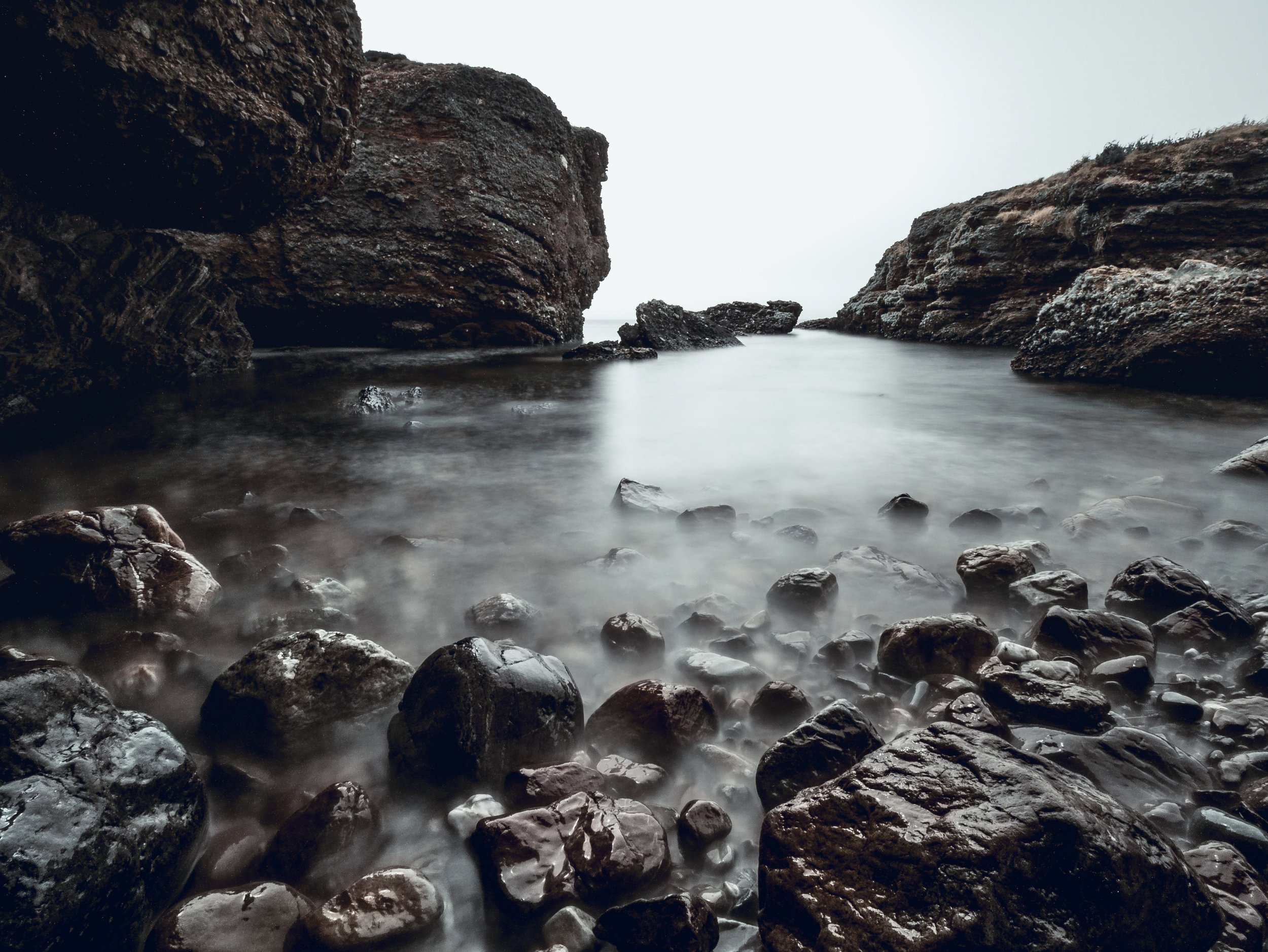URTH Filters Review
URTH (Previously known as GOBE) were kind enough to send me a set of their latest filters, and so I hopped on the ferry to the Isle of Man for a few days to put them through their paces.
There are the standard ND's in the set: ND4, 16, 32, 64, and they also sent me a new, shiny, and incredibly interesting filter that I couldn't wait to try: the ND1000. I was most excited about that filter, and I was right all along. It's a beast. The creative opportunities are immense.
With the ND1000, you can produce long exposures in midday sun. And I'm not talking 2 second exposures. I'm talking 30, 40 seconds. It's amazing.
I headed to the coast to see if I could get some creative shots of the sea against rocks. I got some crackers, if I do say so myself. The quality of the filters made post processing a dream too. I was concerned that there'd be a huge colour cast with the filter being so strong, but the colour cast was kept to a minimum, if any. I am so so impressed.
Moving water turns to mist with a long enough exposure. you've probably seen these effects before. I love it. It adds so much more interest to a landscape photo. And with this filter, it's an incredibly easy effect to achieve.
2024 update! — now with MAGNETS
I’ve got my hands on a new set of magnetic filters from Urth, and they’re blummin’ brilliant. I’ve been a Gobe/Urth shooter for many years (the original text from this article is from 2018!) and it’s so nice to see a company go from strength to strength.
The new filter set (I got the 67mm set) is magnetic. Ooooh! How does that work? Well, it comes with a standard looking filter ring that’s magnetic. Stick that to the front of your lens and now you can snap on all your filters instantly. This makes changing filters really fast, which I love, as I’m often a bit clumsy. The last thing you want to do is drop a filter while you’re trying to unscrew it.
They stack together with a cap on each end too, so they’re super portable and tidy.
Check out the new set on Amazon here
Urth magnetic ND filters are very well thought out and the same excellent quality as always
Bringing some fun into filters
I've often found filters to be more of a necessity than a creative endeavour, and never really got too excited about them before. But let me tell you, this ND1000 is NEVER leaving my camera bag again. It's also super handy if you need to get rid of any pesky people. I was at the coast, and a few fellow tourists were walking to the edge... right in the middle of my shot. How inconsiderate! ;)
But fear not. Provided they're not standing still, with a long exposure, as if by magic... they disappear all together. I'd love to try this at a tourist spot, like at a famous building, and see how clean the image can be.
The ND1000 rocks. What about the rest?
So, consider me in love with the ND1000. But the other filters are equally as impressive.
The set of standard ND's are great for similar effects when you're closer to golden hour, and you don't need such a strong ND filter. They're also a life saver when it comes to video. With video, you want to keep your shutter speed relatively low to create the most cinematic appearance as possible. sometimes that's impossible in harsh lighting conditions. The ND's work a treat to keep your shutter speed low, and because they're such high quality you don't have to worry about it affecting the colours of your image. You can also stack these various strength ND's to dial in the exact strength, so it's very versatile.
Gobe Filters
Filters Filters Filters. Lovely Filters.
URTH Circular Polariser
Finally, I tested out the circular polariser. I've had a lot of different polarisers in the past, from various brands, and I have to say the Gobe CPL is up there with the best of the best. The build quality is superb - and this matters, given how much you'll be turning this particular filter - and the results are amazing.
CPL filters are a must for landscape photographers, and photographers in general, in my opinion. Why? Because there is no way at all to reproduce their effects in post production. You have to get it right in camera. Check the photos below to I mean. Look at the water: with the CPL filter you can see through the reflection. In the standard image, all that information is lost forever.
(Just, you know, imagine we’re looking at a nice coral reef and not a random bay in the Isle of Man.
URTH — Ethical and Clever
URTH as a brand are a wonderful bunch. They plant trees for every filter sold, so while you're treating yourself to a new piece of gear, you're also helping the environment. I love that.
The way you can stack these filters to transport them is inspired too. They provide a front and rear metal cover, so you can take them with you without any chance of the glass getting scratched. Just unscrew the filter you need, and store the rest together. Genius.
Pro tip: You don't have to buy filters for every different size. Buy the filter in the largest size you want to use, then buy step-down rings to different sizes so you can use the filter with other lenses.
Step up/down rings for the win. For instance, I have the 52mm filters, which fit my Olympus 9-18mm perfectly. But with a 52-49mm step-down ring, I can now use the same filters on my lumix 25mm 1.4, as well as all my Meike and Olympus vintage lenses. And the 49-37mm step down ring means I can use them on the stock lens that came with my GX80. So you can get loads more use out of the filters at very little extra cost.
I'll leave a link below to a set of step-down rings to give you an idea of what I'm talking about, but check they have the sizes you need in the set before buying.
Here are some photos! I've included the unedited versions just to show you how impressive these filters are, straight from the camera.
Gobe Filters
Superb quality, good value, and an ethical company. Pretty damn cool.
























